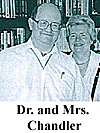 One of Britain's leading military historians, David Chandler is
best known for his books on the Napoleonic Wars (several of which
have been published by Greenhill).
One of Britain's leading military historians, David Chandler is
best known for his books on the Napoleonic Wars (several of which
have been published by Greenhill).
One of the periods of interest to him however has been Marlborough's campaigns in the eighteenth century, and Greenhill are reprinting a volume edited by David Chandler which presents two key memoirs. The volume is Military Memoirs of Marlborough's Campaigns, 1702-1712 by Captain Robert Parker, Royal Regiment of Foot of Ireland, and the Comte de Merode-Westerloo, Field Marshal of the Holy Roman Empire. These two key memoirs provide a superb insight into a formative European campaign and vividly capture the face of battle in the early eighteenth century. They describe, among others, the battles of Blenheim, Ramillies, Oudenarde and Malplaquet. Both accounts are from the pens of gifted, but very different, writers, well placed to observe the leading personalities and their actions.
Robert Parker first enlisted in 1683, rose to Captain of Grenadiers in the Royal Regiment of Foot of Ireland by 1708 and served until 1718. Winston Churchill said of Parker's account of his campaigns, 'If we had to choose one single record of Marlborough's campaigns and of his personality, we might well be content with the journals of this marching captain'. Merode-Westerloo commanded a regiment in the Walloon army before seeing action in Italy, and eventually became a Field-Marshal of the Holy Roman Empire. Parker's and Merode-Westerloo's memoirs, edited and placed in context by David Chandler, give fascinating descriptions of a soldier's experiences in one of history's most remarkable campaigns.
To provide a taste of what is in the book, the following excerpt comes from the dramatic account by Captain Robert Parker of the battle of Malplaquet:
-
"The part which our Regiment acted in this battle was something
remarkable. We happened to be the last of the regiments that had
been left at Tournai to level our approaches, and therefore
could not come up till the lines were all formed and closed, so
that there was no place for us to fall into. We were ordered
therefore to draw up by ourselves, on the right of the whole
army, opposite to a skirt of the wood of Sart and when the army
advanced to attack the enemy, we also advanced into that part of
the wood, which was in our front.
We continued marching slowly on, till we came to an open in the wood. It was a small plain, on the opposite side of which we perceived a battalion of the enemy drawn up, a skirt of the wood being in the rear of them. Upon this Colonel Kane, who was then at the head of the Regiment, having drawn us up, and formed our platoons, advanced gently toward them, with the six platoons of our first fire made ready.
When we had advanced within a hundred paces of them, they gave us a fire of one of their ranks: whereupon we halted, and returned them the fire of our six platoons at once; and immediately made ready the six platoons of our second fire, and advanced upon them again. They then gave us the fire of another rank, and we returned them in a second fire, which made them shrink; however, they gave us the fire of a third rank after a scattering manner, and then retired into the wood in great disorder: on which we sent our third fire after them, and saw them no more.
We advanced cautiously up to the ground which they had quitted, and found several of them killed and wounded; among the latter was one Lieutenant O'Sullivan, who told us the battalion we had engaged was the Royal Regiment of Ireland. Here, therefore, there was a fair trial of skill between the two Royal Regiments of Ireland, one in the British, the other in the French service; for we met each other upon equal terms, and there was none else to interpose. We had but four men killed, and six wounded: and found near forty of them on the spot killed and wounded.
The advantage on our side will be easily accounted for, first from the weight of our ball; for the French arms carry bullets of 24 to the pound; whereas our British firelocks carry balls of 16 only to the pound, which will make a considerable difference in the execution. Again, the manner of our firing was different from theirs; the French at that time fired all by ranks, which can never do equal execution with our platoon-firing, especially when six platoons are fired together. This is undoubtedly the best method that has yet been discovered for fighting a battalion; especially when two battalions only engage each other."
Back to Greenhill Military Book News No. 85 Table of Contents
Back to Greenhill Military Book News List of Issues
Back to Master Magazine List
© Copyright 1998 by Greenhill Books
This article appears in MagWeb (Magazine Web) on the Internet World Wide Web.
Other military history articles and gaming articles are available at http://www.magweb.com